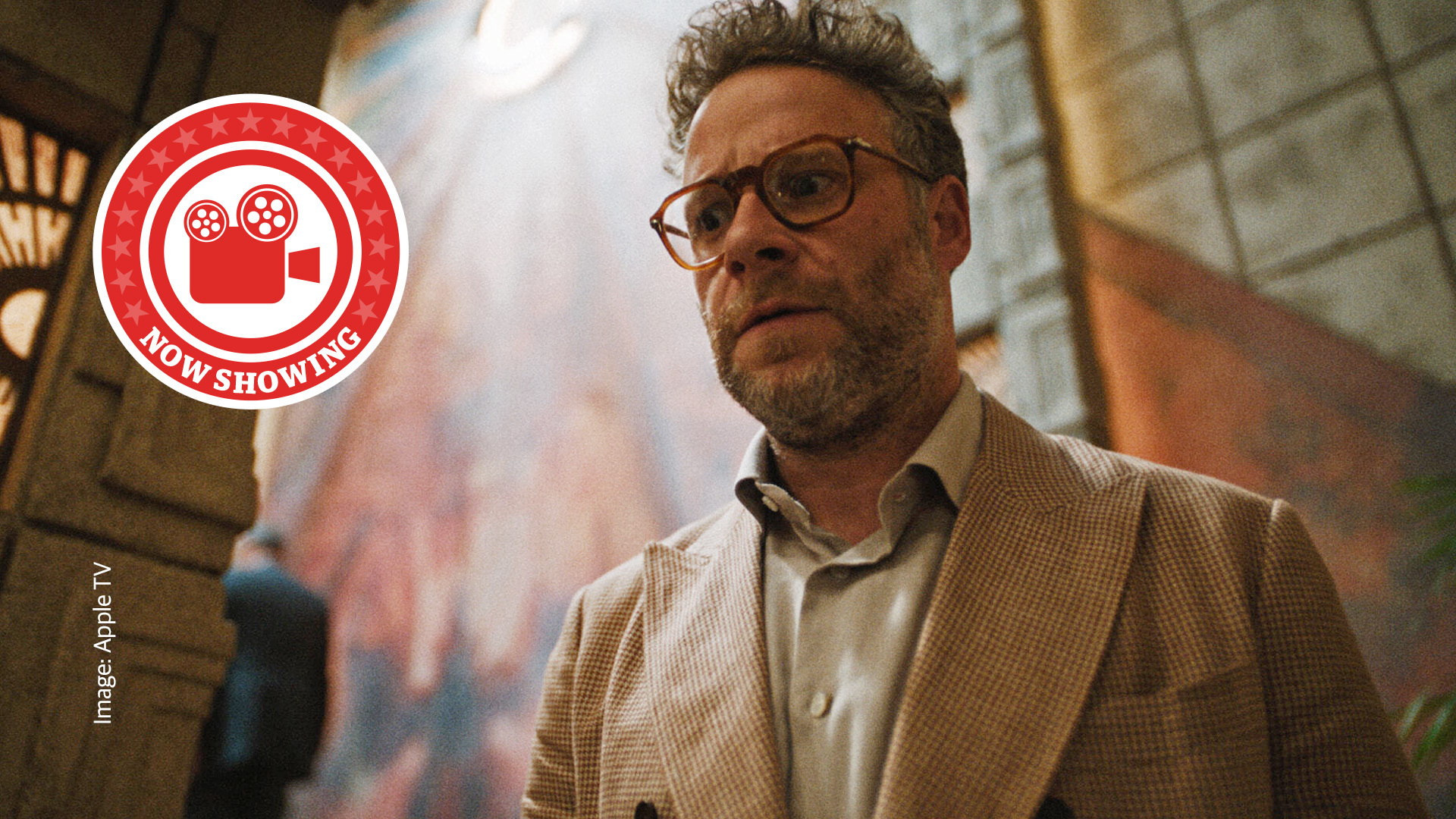How to listen to Radiohead in chronological order
All the albums, EPs, soundtracks and solo works
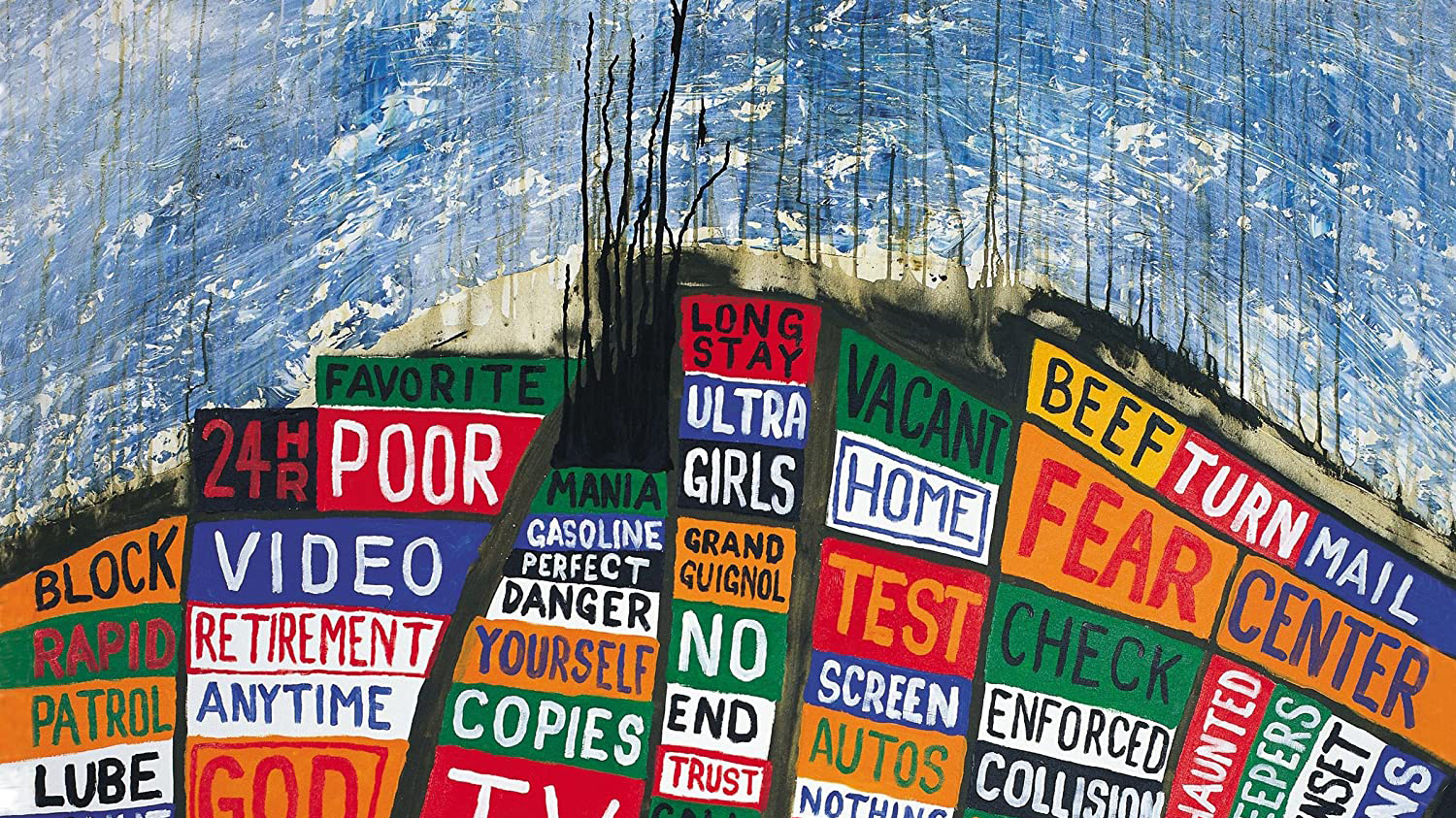
If you're one of those who takes delight in traversing a band's catalogue to witness some kind of sonic evolution, then you'll find few as sprawling and diverse as that of Radiohead.
This Oxfordshire quintet – formed of Thom Yorke, Jonny Greenwood, Ed O'Brien, Colin Greenwood and Philip Selway – have become undeniably one of the most successful bands in the world, and if not definitively the best then certainly in the top one.
Their canon can be rather daunting to a first-time listener, however. It is vast, not exactly teeming with hit singles – despite six UK No1 albums, Radiohead have never topped the singles charts – and its stylistic reach is about as wide as you can get without sounding disjointed. And that's before you get to all the solo work, soundtracks and the attic full of B-sides.
That's why we put together this guide, as recently we did for the music of David Bowie, to hold your hand along a journey from 1992 to the present day. We'll cover every release from every member of the band and, while some aren't available on streaming services, any that are have made their way to our dedicated Spotify and Tidal Radiohead playlists.
So whether this is your first time listening to something other than Creep, or you're just here to pick up a little trivia on your favourite album, make yourself comfortable. We've a lot to get through.
Listen to Radiohead in chronological order on Spotify or Tidal.
TL;DR: a brief introduction to Radiohead
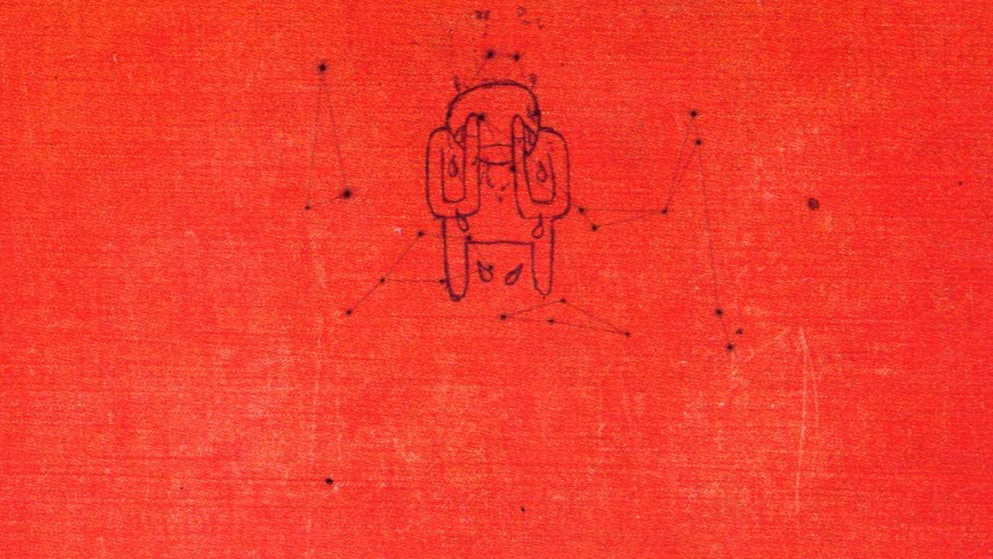
Don't fancy tackling Radiohead's entire catalogue in one go? These ten tracks will introduce you to the band's nine albums.
The latest hi-fi, home cinema and tech news, reviews, buying advice and deals, direct to your inbox.
Creep (1992) Preceded only by a 3000 CD run of the Drill EP earlier in 1992, Creep became an anthem for the alienated, peaking at No7 in the UK charts, and in truth still stands out for its combination of complexity and melody among Radiohead’s earliest work.
My Iron Lung (1994) A first taste of The Bends, a decidedly more accomplished, mature and complete second album. Not stylistically dissimilar from what came before, but a more spacious and careful set of arrangements.
Talk Show Host (1996) Undoubtedly Radiohead’s most famous B-side, Talk Show Host appeared on Street Spirit (Fade Out) and hinted in January 1996 at some of the experimentation and dark minimalism to be expected from OK Computer and beyond.
No Surprises (1997) The first track recorded for OK Computer, and the version used is the very first take. The group's trademark dissonance is evident in the pitch-black lyrics set against a cradling lullaby.
Kid A (2000) The album Kid A was hugely experimental and heavily reliant on electronics, and was not promoted by any singles. Its title track here is about as far from the mainstream as the group could imaginably veer.
I Might Be Wrong (2001) Proof of the band’s ability to be playful with instrumentation and arrangement while still delivering an infectious hook, I Might Be Wrong featured on Amnesiac, released only eight months after Kid A.
There, There (2003) The lead single from the album Hail To The Thief, in many ways signaling Radiohead's return to a more familiar, guitar-led sound – or at least weaving it in more generously to the sound developed on their previous two records.
Reckoner (2007) Some spacious arrangements and light-fingered production benefited a collection of songs that had debuted on a tour leading up to the release of Radiohead's seventh album, In Rainbows. None more typified the approach than Reckoner, easily a standout track with its gliding melody and communal percussion.
Bloom (2011) Ensuring fans couldn’t assume the band were mellowing after a fifth No1 album, Radiohead returned with perhaps their most aggressively experimental record to date when they released The King Of Limbs, its opener being Bloom.
True Love Waits (2016) First performed way back in 1995, True Love Waits was an unreleased live favourite for more than two decades before a studio recording finally appeared on A Moon Shaped Pool – at the fourth time of asking.
Pablo Honey (1993)
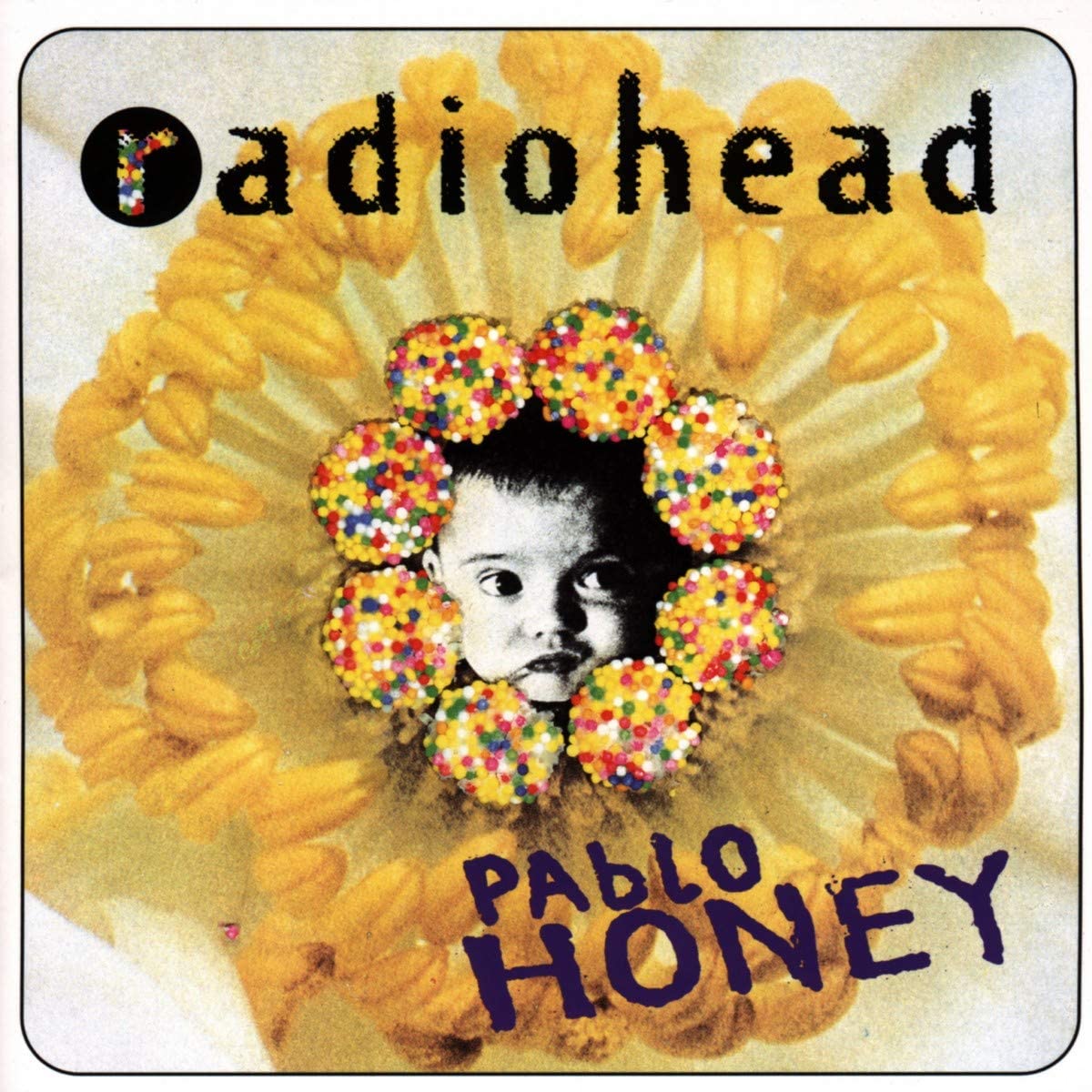
The story of Radiohead really goes back as far as 1985, when the group first began rehearsing at Abingdon School in Oxfordshire. Thom Yorke and bassist Colin Greenwood were friends in the same school year, guitarist Ed O'Brien and dummer Philip Selway were in the year above and Jonny Greenwood – Colin's brother – was two years below.
Initially named On A Friday, after the afternoon on which they'd rehearse, their performances and demo albums were enough to attract the ear of Parlophone Records in 1991, and on 5 May the following year the band released their first EP under their new, Talking Heads-inspired moniker.
The lead track from the Drill EP, Prove Yourself, did receive some national radio play, but its 3000-strong CD release meant most people wouldn't hear its contents until three of the four songs were included on Radiohead's debut album.
Far more enduringly popular was the band's second release, Creep, though Radiohead's biggest-selling single only made its way to No78 in the UK charts after an initial release in September 1992 – not entirely aided by minimal radio play due to its depressing nature.
In fact, Radiohead would have to release the single Anyone Can Play Guitar, debut album Pablo Honey and non-album single Pop Is Dead – all in 1993 – before a rerelease of Creep in September finally became the group's first top 10 entry when it reached No7.
That in turn helped with sales of Pablo Honey, which peaked at No22 – and but for the release in some territories of Stop Whispering as a single in October, and the Japan-only Itch EP in June 1994, it was rapidly onto the next chapter as far as the band was concerned.
Radiohead releases 1992-1994 (Albums and singles/EPs)
Drill EP; Creep; Anyone Can Play Guitar; Pablo Honey; Pop Is Dead; Stop Whispering; Itch EP.
The Bends (1995)
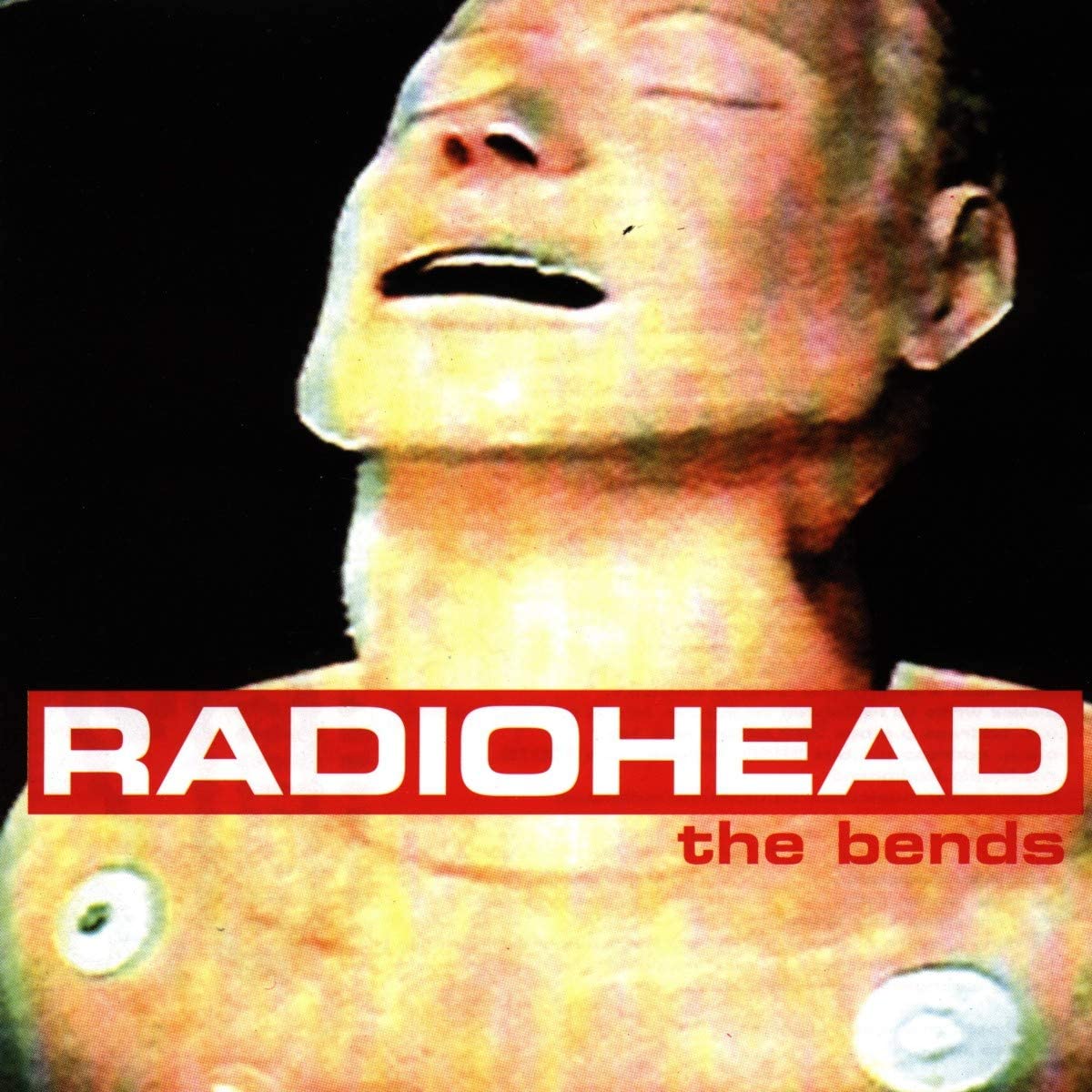
There was definitely something other about My Iron Lung when it was issued as a first taste of Radiohead's second album in September 1994.
There wasn’t so much a change of direction, but a more mature and careful crafting of the songs, along with John Leckie’s surer and more spacious production, made for the sound of a band seemingly more comfortable in its skin.
Fans would have to wait another five months before more music was released, though. High and Dry and Planet Telex became a lead double A-side on 27 February but on 13 March both second album The Bends and debut live film Live at the Astoria made the wait worthwhile.
Becoming the band's highest-charting release when it peaked at No4, The Bends is also significant for being the first Radiohead album to feature cover art created by Stanley Donwood.
As with Nigel Godrich – who's first production credit with the band would come two years later – Donwood's work has been present on every one of the band's releases since.
Three more tracks from the album were released as singles over the following year: Fake Plastic Trees (a song written by Yorke pre-Radiohead), Just and Street Spirit (Fade Out).
Not only did that last score the band their first top five single – only four more have followed since – but it included Talk Show Host as one of its B-sides. Sparse and darkly minimal, in hindsight it was perhaps the most explicit indication of what was about to come.
Radiohead releases 1994-1996 (Albums and singles/EPs)
My Iron Lung EP; High and Dry / Planet Telex; The Bends; Fake Plastic Trees; Just; Street Spirit (Fade Out).
OK Computer (1997)
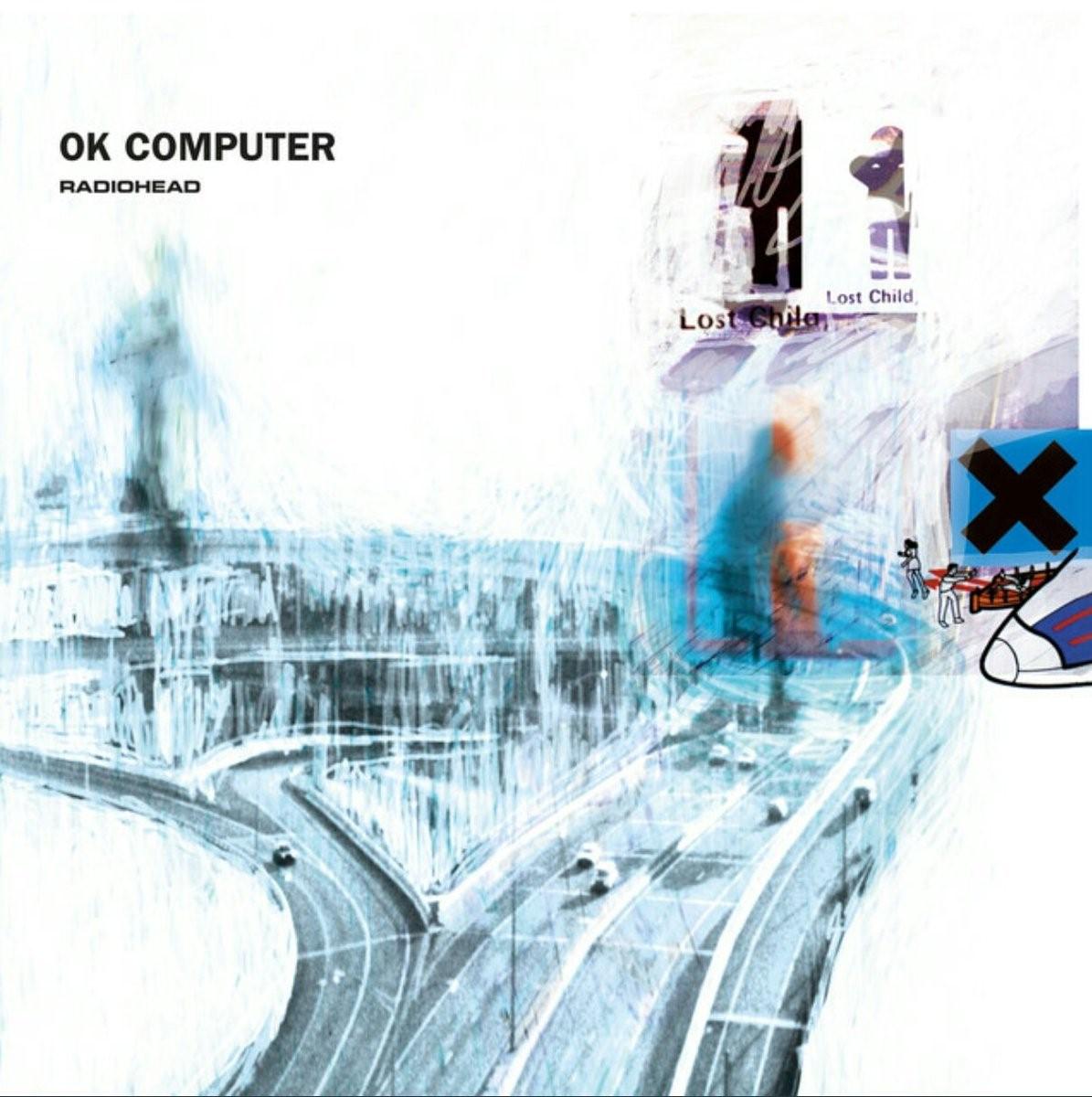
On 21 May 1997, Radiohead released OK Computer. Produced by Nigel Godrich, it shifted the band's positioning from slightly obscure, relatively complex five-piece guitar music to a more daring and inventive sound rife with creativity while still melodious enough to conquer a world stage.
Indeed, Radiohead were no longer mainly a UK-based success. OK Computer topped the charts at home, but also reached No21 in the USA and won the Grammy for Best Alternative Album.
A few days later came the release of Paranoid Android as the record's lead single – which achieved the band's highest chart position to date when it reached No3 – and then in August Karma Police, which as one of its B-sides contained Meeting In The Aisle, Radiohead's first-ever instrumental offering.
A combination of diversity and the strength of every song on the album meant different tracks could be used as singles worldwide; Lucky was released in France in December 1997, while the No Surprises / Running From Demons EP was used to promote the band's upcoming tour in Japan.
This was also the period during which Yorke's voice was beginning to be heard on other artists' material – firstly on a collaboration with Sparklehorse for EMI's 1997 Come Again compilation that celebrated the label's biggest releases. Yorke sang his part of Wish You Were Here down the phone while on tour, and the Pink Floyd cover also appeared as a B-side to Sparklehorse's Maria's Little Elbows in 1998.
After Radiohead released No Suprises worldwide in January 1998, Yorke was again heard on someone else's track in April – this time Drugstore's El President, released the day before an EP of OK Computer B-sides – then again in August on UNKLE's Rabbit In Your Headlights.
In October, the UK first saw Todd Haynes's glam-rock movie Velvet Goldmine, which was produced and featured a curated soundtrack by R.E.M.'s Michael Stipe. Having toured with Radiohead, Stipe got Yorke and Jonny Greenwood to collaborate with Suede's Bernard Butler and Andy Mackay of Roxy Music to cover five of the latter's songs.
Yorke was in fact also approached to write the score for David Fincher's adaptation of the Chuck Palahniuk novel Fight Club, but declined to recover from promoting and touring OK Computer.
The madness and wonder of that period is well encapsulated in the documentary film Meeting People Is Easy – released on 30 November 1998, losing out to Jimi Hendrix for the Best Music Film Grammy – a toll it would take more than a year to pay.
Radiohead releases 1997-1998 (Albums and singles/EPs)
OK Computer; Paranoid Android; Karma Police; Lucky; No Surprises / Running From Demons; Airbag / How Am I Driving? EP.
Kid A (2000)
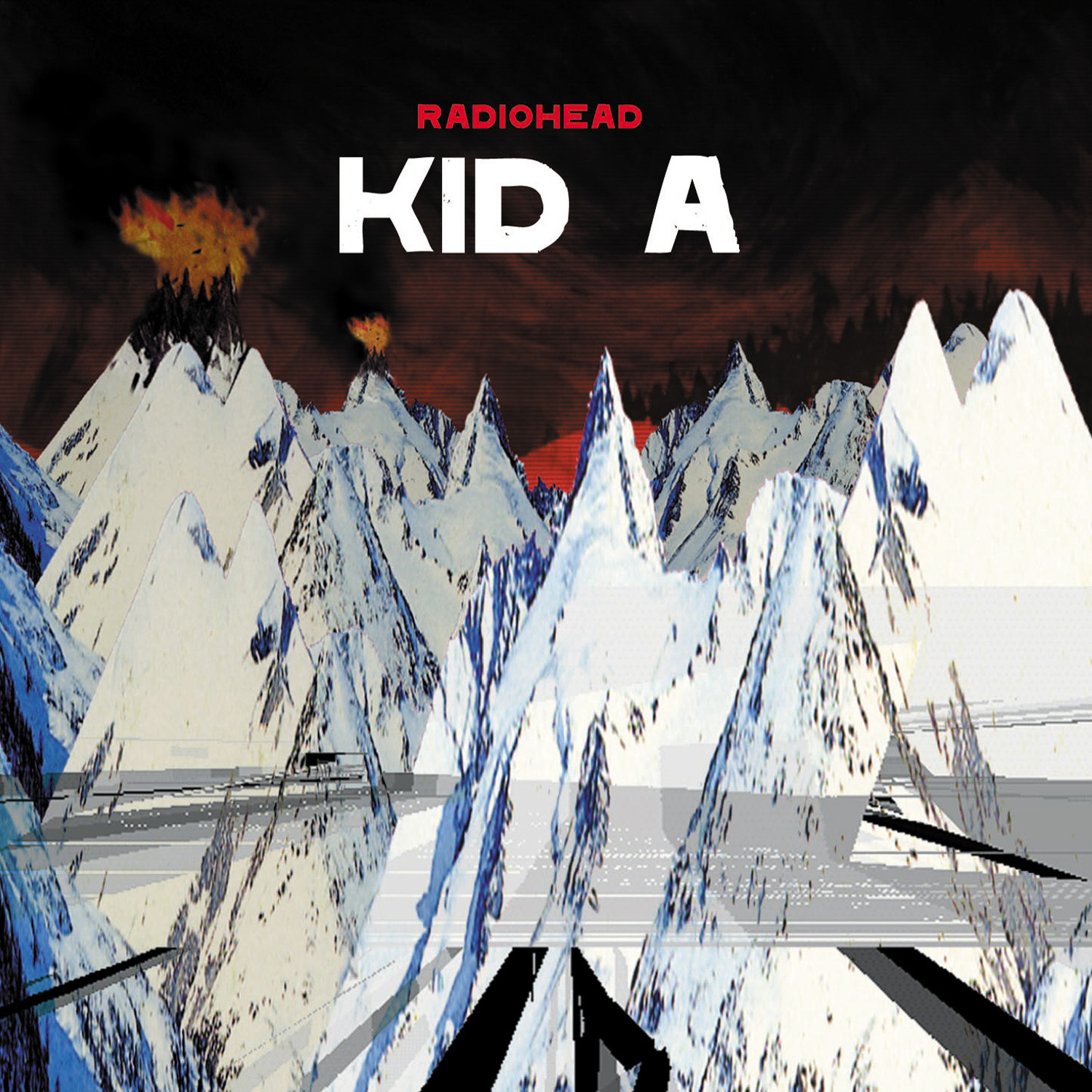
The new millennium began with Radiohead having been dormant for more than a year, and when they did return it was with the resolve to do pretty much the opposite of what happened with OK Computer.
After Yorke had given his voice to I've Seen It All in July – a track from Björk's Dancer In The Dark soundtrack – Radiohead released Kid A on 2 October 2000.
A potentially alienating array of experimentation and heavy use of electronics, with no promotional singles or music videos, it inevitably shot straight to No1 in both the UK and the States and scooped a second Best Alternative Album award at the Grammys.
It wasn't that Radiohead tried to release this record under the radar, though; they were simply using means that at the time were extremely forward-thinking. Namely, the internet.
The album was available to stream online, along with some short animated films including the album's music and artwork, while bootlegs of early performances were up on file-sharing websites and the record was also leaked early.
Later the same month PJ Harvey would release her album Stories From The City, Stories From The Sea, which featured Yorke singing on three tracks – This Mess We're In, One Line and Beautiful Feeling – and beat Radiohead's Amnesiac to win the Mercury Music Prize the following year.
Radiohead releases 2000 (Albums and singles/EPs)
Kid A.
Amnesiac (2001)
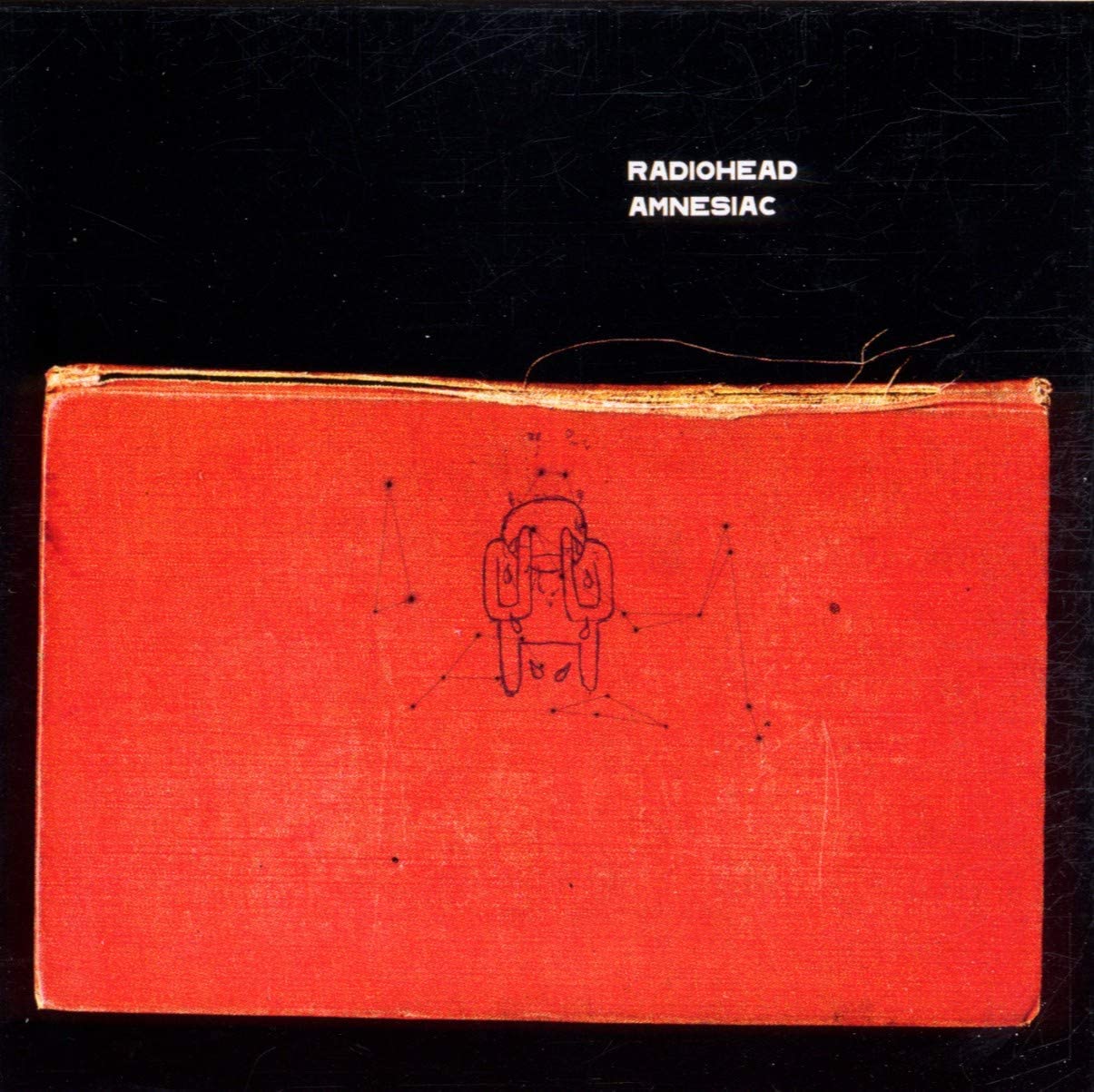
Eight months is all we had to wait for Radiohead's next record, Amnesiac.
Often regarded as a kind of sister album to Kid A, it continued challenging listeners with its experimental arrangements but without forgoing deep hooks and often hauntingly beautiful melodies.
Preceded by the single release of Pyramid Song a couple of weeks earlier, Amnesiac became Radiohead's third UK No1 album and reached No2 in the US when it came out on 4 June 2001.
The only other official release from the album was Knives Out in August, but the band released their first live album – a collection of performances of songs from Kid A and Amnesiac – in November.
Alongside those album tracks – including a stunning piano version of Like Spinning Plates – I Might Be Wrong: Live Recordings closed with a performance in Oslo of live favourite True Love Waits, its first inclusion on any release.
Though there would be no further Radiohead releases for another two years, Ed O'Brien and Philip Selway featured in Neil Finn's 7 Worlds Collide project, a collective that released a self-titled live album in November 2001 – and who would enter the studio a few years later.
Radiohead releases 2001 (Albums and singles/EPs)
Pyramid Song; Amnesiac; Knives Out; I Might Be Wrong: Live Recordings.
Hail To The Thief (2003)
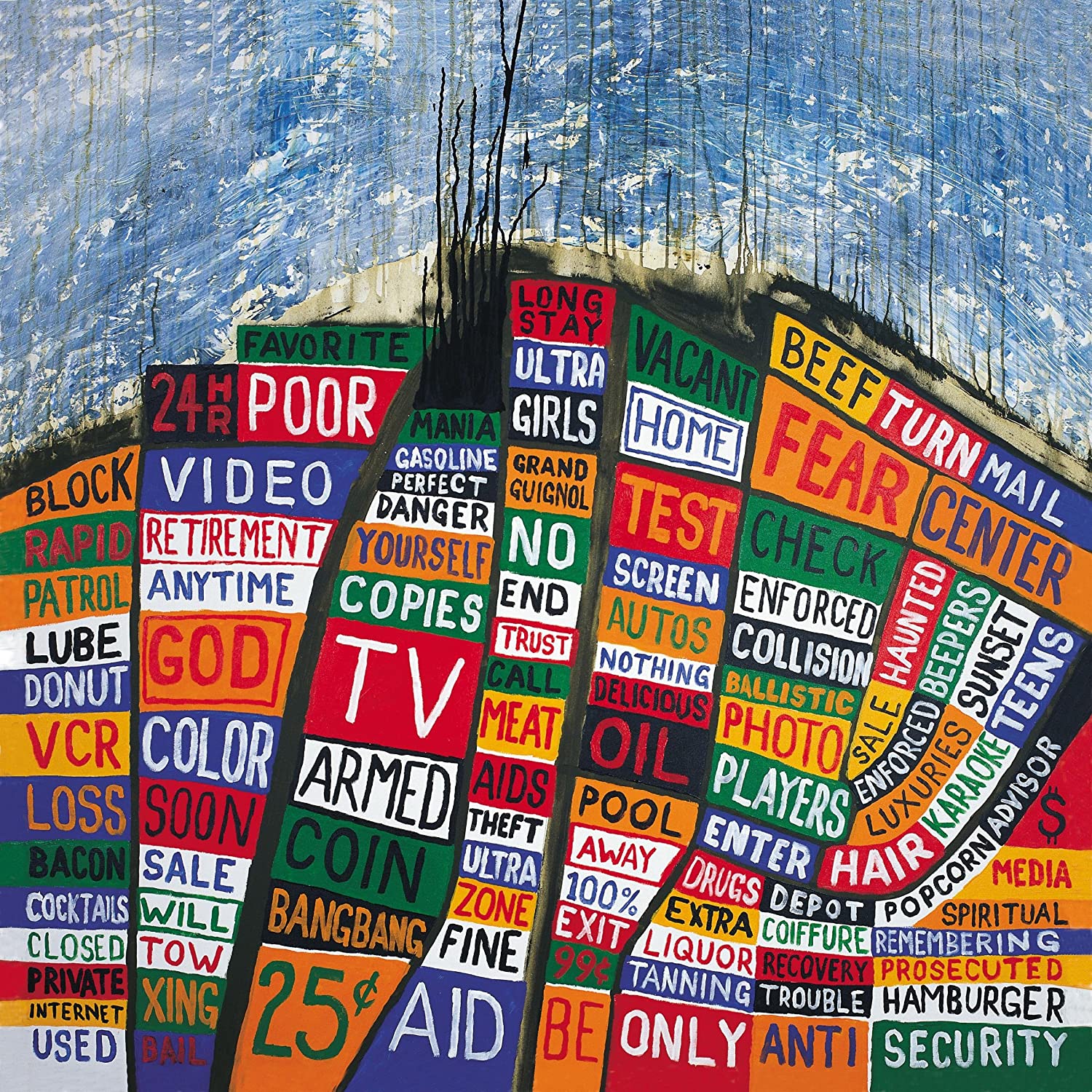
Those disappointed by Amnesiac, having hoped for a return to Radiohead's more guitar-led roots, are likely to have been delighted when There, There became the lead single from the band's sixth album, Hail To The Thief.
The single reached No4 in the UK – the last time to date Radiohead have broken the top ten – but was not wholly telling of the record that was to follow. Rather than a regression to a previous style, Hail To The Thief married live band recordings – as opposed to overdubs – with the synthesized sounds that had dictated their previous two albums.
Alongside it came The Most Gigantic Lying Mouth Of All Time. Brought out on DVD on 1 December 2004, this collection of 24 short films directed by Chris Bran was designed initially for a four-episode run on regular TV. Instead, Radiohead launched their own online TV channel on 26 May 2003, with the episodes beginning on the hour – those who turned up late would be faced with a test card and 1970s-style intermission music.
The album, released on 9 June, debuted at No1 in the UK and No3 in the States, with Go To Sleep and 2 + 2 = 5 both charting as singles later in the year.
The year is also significant in the career of Jonny Greenwood specifically, being the year he released his first film score – for Simon Pummell's BAFTA-winning documentary Bodysong – before a 2004 EP featuring the B-sides and outtakes from Hail To The Thief, named COM LAG (2plus2isfive), was the final Radiohead release for another three years.
After a fallow year in 2005, but for the inclusion of I Want None Of This on the War Child charity album Help: A Day In The Life, Radiohead fans were at least treated to some solo work before Radiohead's next album.
On 10 July 2006 came Thom Yorke's solo debut, The Eraser. Charting at No3 in the UK and No2 in the US, its connection to Radiohead is strengthened by Nigel Godrich's production and artwork by Stanley Donwood, but there is an intimacy that distinguishes this electronics-led record from the band's catalogue.
Two tracks – Harrowdown Hill and Analyse – were released as singles, and their B-sides were included on the Spitting Feathers EP that November. Yorke also featured on Modeselektor's Happy Birthday! album in 2007, on the track The White Flash, shortly before Radiohead released their first album since leaving Parlophone.
Radiohead releases 2003-2004 (Albums and singles/EPs)
There, There; Hail To The Thief; Go To Sleep; 2 + 2 = 5; COM LAG (2plus2isfive) EP.
In Rainbows (2007)
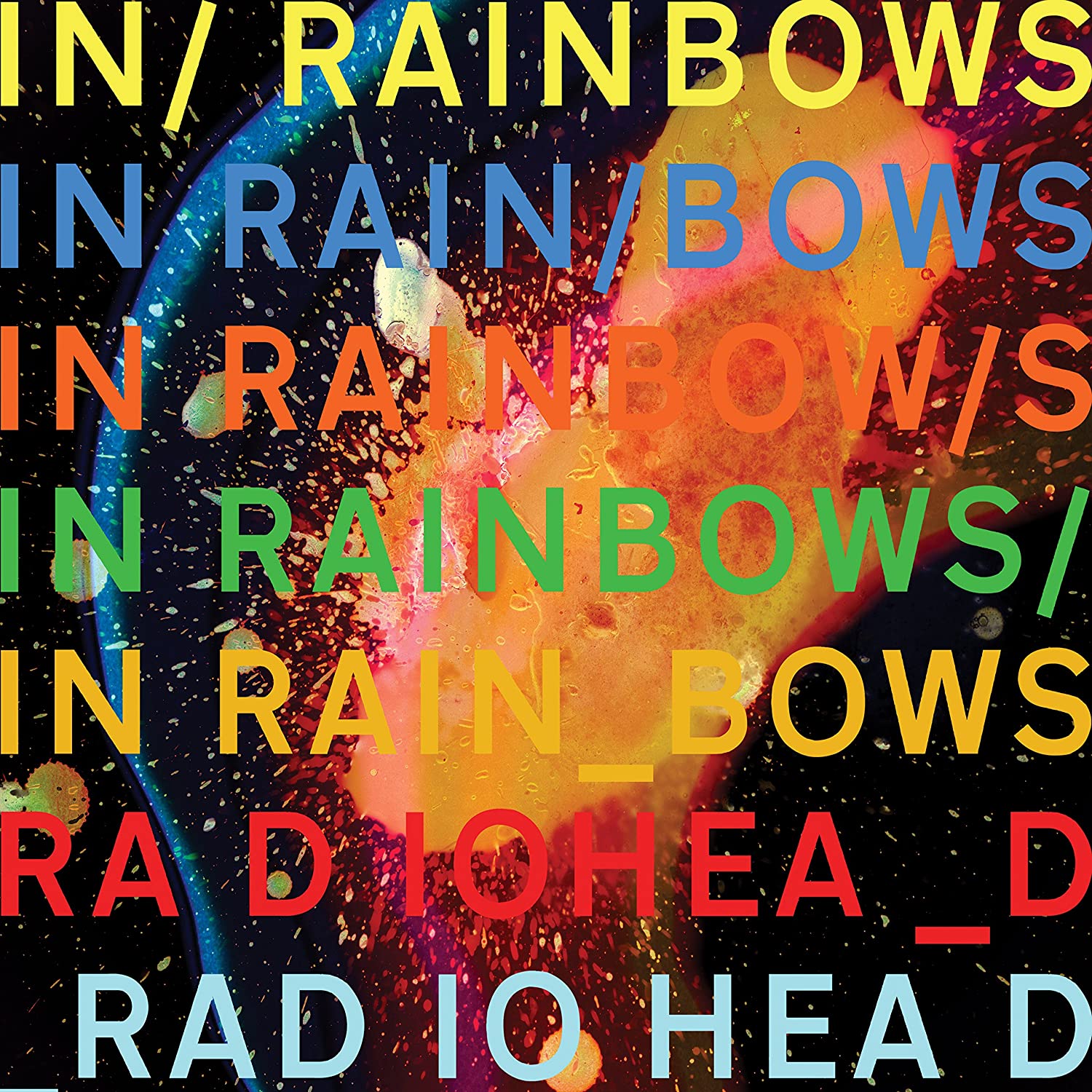
Without a label, having left EMI-owned Parlophone Records, Radiohead were free to release In Rainbows whenever they wanted – 10 October 2006, as it happens – and fans were free to pay whatever they wanted for it.
Initially self-released online on a pay-what-you-like basis, lore is that In Rainbows was actually more financially successful than major-released Hail To The Thief – even before it was afforded a physical form by XL Recordings the following year.
Parlophone, who still owned the band's back catalogue at the time, also released the Radiohead Box Set – all previous albums on seven CDs or a 4GB USB stick – on 10 December 2007 to piggyback on XL's physical release.
Despite no singles having been released at this point, the songs on In Rainbows were far from alien to fans, with Radiohead having performed most of them on a tour leading up to the album's release, and the record duly topped the charts on both sides of the Atlantic.
Also making waves in December 2007 was Paul Thomas Anderson's There Will Be Blood, a period film based on Upton Sinclair's novel Oil!, for which Jonny Greenwood wrote the score – starting a hugely fruitful partnership between the Oscar-nominated director and Radiohead guitarist.
It was largely a year of promotion in 2008, with the band now backed by XL, with Jigsaw Falling Into Place and Nude put out as singles. For the latter, the band made stems available online so fans could remix the track at home – something they would do again later in the year for the release of Reckoner.
Between those two singles, though – after another Parlophone-released Best Of album and DVD – was a first proper peak inside Radiohead's natural habitat with the release of In Rainbows: From The Basement, as well as collection of remixes from Yorke's The Eraser.
Yorke and Björk collaborated again on the latter's charity single Náttúra in October 2008, before Radiohead released two new singles in August the following year.
The first was Harry Patch (In Memory Of), a £1 digital download with all proceeds going to the Royal British Legion, and that was followed by a free download of These Are My Twisted Words.
Also that month came the debut studio record from the 7 Worlds Collide collective. Titled The Sun Came Out, it again featured performances by Selway and O'Brien as well as songs written by the pair.
Ed O'Brien wrote Learn To Crawl for the album with Johnny Marr and Liam and Neil Finn, as well as Bodhisattva Blues again with Liam Finn; Philip Selway wrote and sang The Ties That Bind Us and The Witching Hour, and wrote 3 Worlds Collide with Glenn Kotche and Neil Baldock.
The torch passed once again to Yorke in September, who gave us the singles Feeling Pulled Apart By Horses – a track of which an early version became Reckoner – and Hearing Damage, written for the Twilight soundtrack. In May 2010 he teamed up for the first time with Flying Lotus, co-writing the track ...And The World Laughs With You for the American musician's album Cosmogramma.
Also in 2010 came Selway's first solo releases with the single By Some Miracle and subsequent album Familial, before the year closed with another Jonny Greenwood score – this time for Tran Anh Hung's Norwegian Wood.
Radiohead releases 2007-2009 (Albums and singles/EPs)
In Rainbows; Jigsaw Falling Into Place; Nude; Reckoner; Harry Patch (In Memory Of); These Are My Twisted Words.
The King Of Limbs (2011)
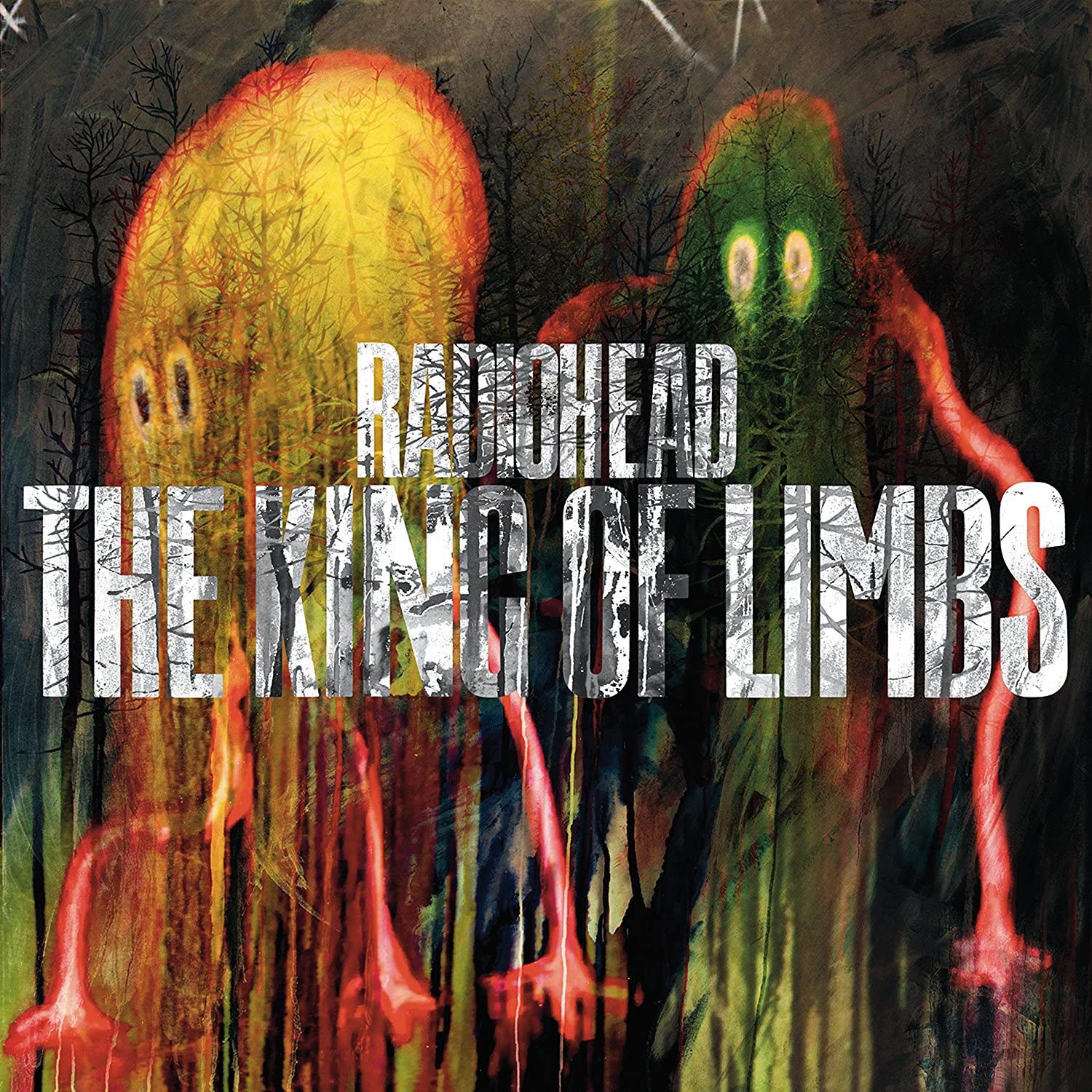
Having released probably their most mainstream-friendly album since 1997's OK Computer when they brought out In Rainbows, Radiohead again turned their back on the popular vote with probably their least accessible record to date.
Debuting on 18 February 2011, The King Of Limbs is far from being bereft of melody or traditional structure, but its sprawling rhythms and off-kilter arrangements are not exceedingly radio friendly.
There were no singles as such, and it became the first Radiohead album since 1995's The Bends not to top the UK charts. It was also the first to do better in the USA than on home soil, ranking four places higher at No3 on the Billboard list.
Those singles were effectively replaced by remixes. After Yorke had released the double A-side Ego / Mirror with Burial and Four Tet, and Radiohead's Supercollider / The Butcher came out for 2011's Record Store Day, TKOL RMX1 began a series of eight remix releases.
Compiled on the record TKOL RMX1234567, tracks from The King Of Limbs were reworked by producers and collaborators such as Caribou, Nathan Fake, Four Tet, Jamie xx and Objekt, cementing the record's status as music for musicians.
Also providing a TKOL RMX were Modeselektor, who invited Thom Yorke to feature on two tracks – Shipwreck and This – from their album Monkeytown, which came out that September. That was followed the next month by yet another impeccable Jonny Greenwood score, for We Need To Talk About Kevin.
A prolific year ended with a double release: The Daily Mail / Staircase single and another live video, The King Of Limbs: From The Basement.
The first Radiohead-related release of 2012 was a collaboration between Jonny Greenwood and Polish composer Krzysztof Penderecki. Recordings of Penderecki's early 1960s pieces Threnody for the Victims of Hiroshima and Polymorphia are each followed by Greenwood's responses, Popcorn Superhet Receiver and 48 Responses to Polymorphia respectively.
And more Greenwood shortly followed, with his score for Paul Thomas Anderson's The Master, before we were first introduced to Atoms For Peace.
A band formed to perform Thom Yorke's solo work on tour, and eventually named after one of those songs, Atoms For Peace features Red Hot Chili Peppers bassist Flea and Radiohead producer Nigel Godrich on keys.
The collective released their first single Default in September 2012 – a week before Yorke and Jonny Greenwood appeared on Flying Lotus's album Until The Quiet Comes – and followed it up with Judge, Jury and Executioner in January. Their first and to date only album, Amok, was released on 25 February 2013, peaking at No5 in the UK and No2 in the US charts.
There were three Radiohead solo projects in 2014: first Thom Yorke released his second album Tomorrow's Modern Boxes, followed by Philip Selway's Weatherhouse and Jonny Greenwood's Inherent Vice score, before Yorke sandwiched those with the single YouWouldn'tLikeMeWhenI'mAngry.
Perhaps the most interesting and even most accomplished of Greenwood's non-Radiohead work came when the guitarist travelled to India to work with Israeli composer Shye Ben Tzur and local folk group the Rajasthan Express.
Released in November 2015, Junun was recorded at Mehrangarh Fort in Rajasthan, fusing the influence of all three components for an album that sounds far more cohesive than describing it would have you believe. Produced again by Godrich, it was also filmed by Paul Thomas Anderson for a worthy documentary release.
One track you won't hear on film, however, is Radiohead's Spectre. Recorded to lead the soundtrack for the James Bond film of the same name, after OK Computer outtake Man Of War was rejected due to being ineligible for a Best Original Song Oscar, it was discarded for being too melancholy and replaced by an offering from Sam Smith.
Nonetheless, the band let it out as a free download on Christmas day 2015.
Radiohead releases 2011-2015 (Albums and singles/EPs)
The King Of Limbs; Supercollider / The Butcher; TKOL RMX1234567; The Daily Mail / Staircase; Spectre.
A Moon Shaped Pool (2016)
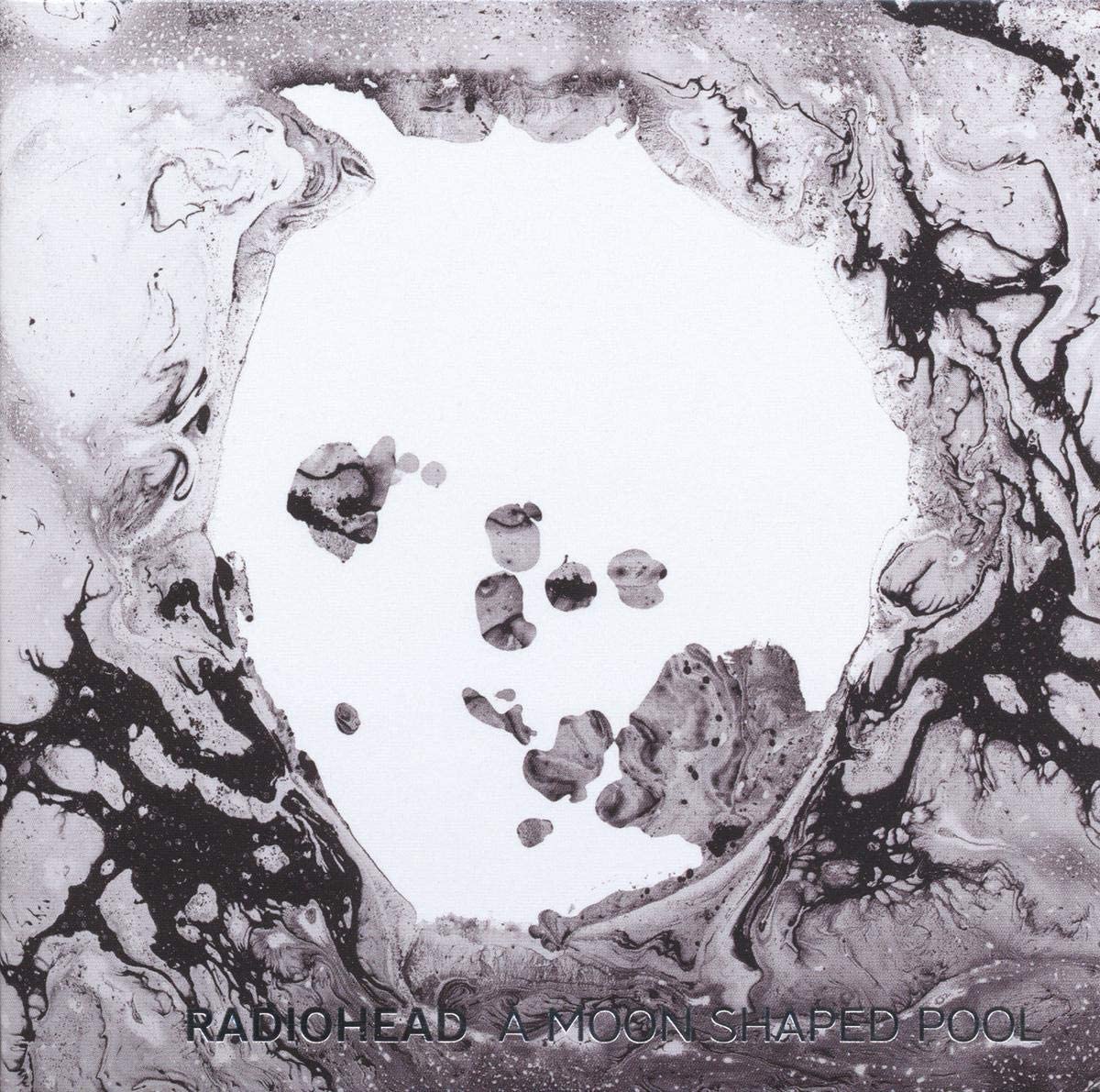
Within the space of a week at the beginning of May 2016, Radiohead collectively returned with the singles Burn The Witch and Daydreaming, and their ninth studio album A Moon Shaped Pool.
It provided a sixth UK No1 for the band, also charting high at No3 in the US, no doubt helped by its more accessible lead singles and the long five years since The King Of Limbs.
The highlight for many fans, however, was the inclusion of True Love Waits. More than 20 years after it was first performed – and after failed attempts to include it on OK Computer, Kid A and Amnesiac – the band and Godrich had finally found an arrangement that worked not only for the song but also for the temperament of the album.
Thom Yorke appeared on the track Beautiful People for Mark Pritchard's album Under The Sun a week later, before global touring meant another year-long wait for anything new from the band.
And when it came, it was another victory for those yearning for older tracks. Celebrating the 20th anniversary of their third record, OK Computer OKNOTOK 1997-2017 was released on 23 June. It included the original album, all the B-sides from the album's singles alongside previously unreleased outtakes I Promise, Man Of War and Lift.
Between that and the band's next release – the single Ill Wind in January 2011 – attention turned to a number of soundtracks. First came Philip Selway's for Let Me Go, then was a double of You Were Never Really Here and Phantom Thread from Jonny Greenwood, before Thom Yorke's first score the remake of cult horror classic Suspiria.
After Ill Wind, Yorke released a download-only EP of outtakes from his Suspiria soundtrack before his computer was hacked and hours of Radiohead demos, performances and rehearsals were distributed online.
It led to Minidiscs (Hacked), an official download of all the stolen files made available for 18 days via Bandcamp with all proceeds going to Extinction Rebellion, at the end of which Yorke released his third solo album ANIMA on 27 June 2019.
ANIMA was teased with cryptic posters in around the world advertising Anima Technologies, a company claiming to be able to recover lost dreams. Calling the advertised number led to a prerecorded message that said Anima Technologies had been seized after unlawful activities, before playing part of the track Not the News.
Whether that advertising was successful or not, Yorke made it to No5 in the UK album charts, and backed it with a Not The News Rmx EP on 2 August. A final release of 2019 featured on the soundtrack to Motherless Brooklyn, another collaboration with Chili Peppers bassist Flea on Daily Battles.
And so we arrive at the latest installment of this group's vast and running catalogue. On 4 October 2019, the track Santa Teresa was released under the name EoB – namely the long-awaited solo debut of guitarist Ed O'Brien.
His album Earth was released on 17 April 2020, featuring a certain Colin Greenwood playing bass on the single Brasil as well as turns from artists such as Omar Hakim and Laura Marling.
As for Radiohead, Selway has been quoted as saying the group planned to work away from each other in 2020 – something which became inevitable due to the global pandemic – so it is likely to be next year at least before this list is added to with any new material.
That said, with Radiohead, you never really know.
Radiohead releases 2016-present (Albums and singles/EPs)
Burn The Witch; Daydreaming; A Moon Shaped Pool; I Promise; Man Of War; OK Computer OKNOTOK 1997-2017; Ill Wind.
Listen to Radiohead in chronological order on Spotify or Tidal.
MORE:
